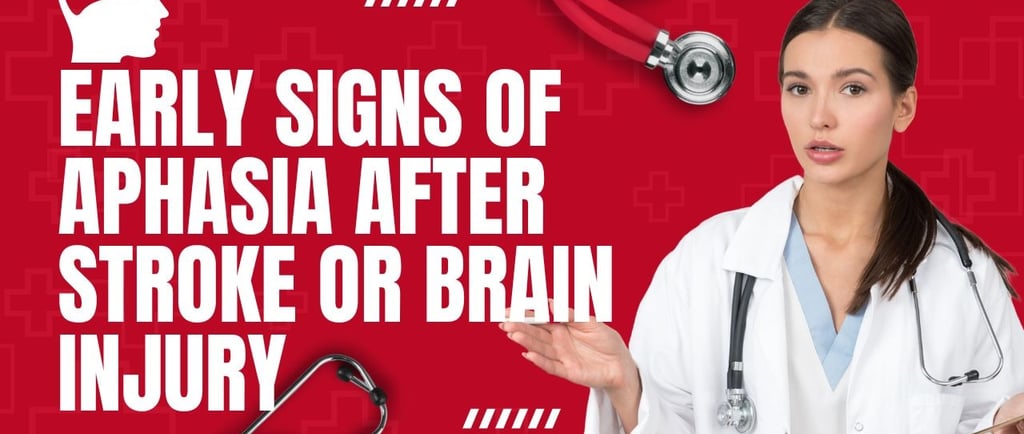Online Speech Therapy Platform
Early Signs of Aphasia After Stroke or Brain Injury
Learn to identify the early warning signs of aphasia after a stroke or brain injury. Spotting symptoms early helps in faster recovery through speech therapy.
APHASIA
Selvakumar
7/11/20252 min read


Introduction
Aphasia is a communication disorder that often occurs after a stroke, brain injury, or other neurological condition. While many people associate aphasia only with speech problems, it actually affects the brain’s ability to process language — including speaking, understanding, reading, and writing.
Spotting aphasia early is key to starting the right rehabilitation. In this article, we’ll explore the early warning signs of aphasia and what steps you should take if you notice them.
🔍 What Causes Aphasia?
Aphasia is usually caused by damage to the language-dominant areas of the brain — most often the left hemisphere. Common causes include:
Stroke (most frequent cause)
Traumatic brain injury
Brain tumors
Neurodegenerative diseases (like primary progressive aphasia)
🚨 Early Signs of Aphasia You Shouldn't Ignore
Here are some common early indicators of aphasia after a neurological event:
1. Difficulty Finding the Right Words
Often called "word-finding difficulty," this is one of the most noticeable early signs. A person may pause often or say “the thing” instead of the correct word.
2. Speaking in Short or Incomplete Sentences
Speech may become limited to short phrases or broken sentences like “Want... water” instead of “I want a glass of water.”
3. Struggling to Understand Others
You may notice the person has trouble following simple conversations or instructions, even if their hearing is normal.
4. Substituting or Mixing Up Words
People with aphasia might say “table” when they mean “chair,” or mix unrelated words together, creating confusing sentences.
5. Reading and Writing Problems
Early aphasia can also affect the ability to read books, emails, or even write their name clearly.
6. Becoming Frustrated or Withdrawn
Many individuals know what they want to say but can’t express it. This can lead to frustration, embarrassment, or social withdrawal.
📅 Why Early Detection Matters
If you notice these signs in yourself or a loved one after a stroke or brain injury, seek medical attention immediately. Early diagnosis and therapy can significantly improve recovery outcomes.
Speech-language pathologists can assess the level of impairment and start personalized speech therapy — either in person or through teletherapy platforms like TelloMeet.
💡 How Can Therapy Help?
Early speech therapy helps rewire the brain’s language pathways and improve communication over time. With consistent practice, many people with aphasia regain a significant portion of their language abilities.
Telerehabilitation makes it even easier — with tools like interactive sessions, personalized exercises, and family involvement, recovery can happen from the comfort of home.
✅ Final Thoughts
Aphasia is more than just a speech problem — it’s a complex language disorder that affects daily life. By recognizing the early signs and acting quickly, you can make a real difference in a loved one’s recovery journey.
If you suspect aphasia after a stroke or injury, don’t wait — consult a tellomeet.com licenced speech therapist today.
